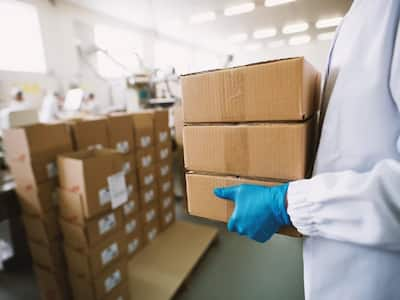
Logistics infrastructure will remain critical for delivering quality care to patients worldwide. Let’s explore some of the critical aspects of healthcare logistics.
In the healthcare industry, efficient delivery of goods and services plays a crucial role in ensuring the timely and effective provision of care. From pharmaceutical supplies to medical equipment and from vaccines to blood products, the logistics infrastructure in healthcare plays a vital role in delivering these essential resources to healthcare facilities, patients, and providers. This article explores the significance of logistics in the healthcare industry and how it contributes to efficient delivery.
Streamlining Supply Chains
Efficient logistics management in healthcare involves streamlining the supply chain process from the manufacturer to the end-user. This process begins with procurement, where healthcare organizations work closely with suppliers to ensure the availability of necessary medical supplies. By establishing strong partnerships with suppliers and leveraging technology, healthcare organizations can optimize inventory management, minimize stock outs, and reduce waste.
Inventory Management
Effective inventory management is crucial in healthcare logistics to avoid overstocking or understocking of essential medical supplies. By implementing inventory management systems and using data analytics, healthcare organizations can accurately forecast demand, track expiration dates, and ensure the right quantity of supplies is available when needed. This not only helps in reducing costs but also improves patient care by preventing shortages or delays in treatment.
Last-Mile Delivery
Last-mile delivery refers to the final leg of the supply chain, where healthcare products are transported from the distribution center to the end-user, such as hospitals, clinics, or patients’ homes. This stage is often challenging due to time-sensitive and delicate nature of medical supplies. Effective last-mile delivery relies on optimized route planning, real-time tracking, and coordination between logistics providers and healthcare facilities. By utilizing technology and employing efficient delivery systems, healthcare organizations can ensure that critical supplies reach their destination promptly.
Cold Chain Management
Cold chain management is a specialized area of logistics in the healthcare industry, particularly for temperature-sensitive items such as vaccines, blood products, and certain medications. Maintaining the required temperature throughout the entire supply chain is vital to preserving the efficacy and safety of these products. Healthcare organizations implement robust cold chain management practices, including temperature monitoring, insulation, and use of refrigerated containers, to safeguard the integrity of temperature-sensitive healthcare items.
READ RELATED: Melt Your "Jelly Belly" With These 7 Easy Exercises
Technology and Data Analytics
Technology plays a significant role in enhancing logistics efficiency in healthcare. Advanced software systems and data analytics enable real-time tracking of shipments, automate inventory management, and optimize delivery routes. For instance, Internet of Things (IoT) devices can monitor the location and condition of medical supplies, alerting healthcare providers and logistics teams of any deviations or potential issues. This level of visibility and control helps minimize errors, improve traceability, and reduce delivery time.
Collaboration and Partnerships
Successful healthcare logistics heavily relies on collaboration and partnerships among various stakeholders. Healthcare providers, suppliers, logistics companies, and regulatory bodies must work together to streamline processes, ensure compliance with regulations, and meet the unique needs of the healthcare industry. Strong partnerships foster knowledge-sharing, innovation, and continuous improvement in logistics practices, ultimately benefiting patient care.
Efficient delivery of healthcare goods and services depends on robust logistics management. From procurement and inventory management to transportation, last-mile delivery, and cold chain management, every aspect of the logistics process is vital to ensuring timely and reliable access to healthcare resources. By harnessing technology, optimizing supply chains, and fostering collaboration, the healthcare industry can enhance logistics efficiency, reduce costs, and ultimately improve patient outcomes. As the healthcare landscape continues to evolve, investing in logistics infrastructure will remain critical for delivering quality care to patients worldwide.
The article is contributed by Anubha Dixit, Founder and CEO, Tongadive.
Total Wellness is now just a click away.
Follow us on
window.addEventListener(‘load’, (event) => {
$(‘#commentbtn’).on(“click”,function(){
(function(d, s, id) { var js, fjs = d.getElementsByTagName(s)[0]; if (d.getElementById(id)) return; js = d.createElement(s); js.id = id; js.src = “//connect.facebook.net/en_US/sdk.js#xfbml=1&version=v2.3”; fjs.parentNode.insertBefore(js, fjs);}(document, ‘script’, ‘facebook-jssdk’));
$(“.cmntbox”).toggle();
});
});








